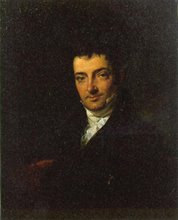The Knickerblogger Advent - The Feast Of Stephen

We're old school here - the 12 days of Christmas - interesting enough, the biggest celebration in Elizabethan times was not Christmas day, but "Twelfth Night" on Epiphany. (Thus the Shakespeare play title).
Anyway, today is the Feast of Stephen, immortalized in the non-Christmas Christmas song (for it takes place the day after) "Good King Wenceslas":
Good King Wenceslas looked out, on the Feast of Stephen,
When the snow lay round about, deep and crisp and even;
Brightly shone the moon that night, tho' the frost was cruel,
When a poor man came in sight, gath'ring winter fuel.
"Hither, page, and stand by me, if thou know'st it, telling,
Yonder peasant, who is he? Where and what his dwelling?"
"Sire, he lives a good league hence, underneath the mountain;
Right against the forest fence, by Saint Agnes' fountain."
"Bring me flesh, and bring me wine, bring me pine logs hither:
Thou and I will see him dine, when we bear them thither."
Page and monarch, forth they went, forth they went together;
Through the rude wind's wild lament and the bitter weather. (or "...winter weather.")
"Sire, the night is darker now, and the winds blow stronger; (or "...wind blows...")
Fails my heart, I know not how, I can go no longer." (or "...can not go longer.")
"Mark my footsteps, my good page. Treadst thou in them boldly: (or "Tread now...")
Thou shalt find the winter's rage freeze thy blood less coldly." (or "Thou should find...")
In his master's steps he trod, where the snow lay dinted;
Heat was in the very sod which the saint had printed.
Therefore, Christian men, be sure, wealth or rank possessing,
Ye who now will bless the poor, shall yourselves find blessing.
In Ireland the day is one of nine official public holidays [3].
In Irish it is called Lá Fhéile Stiofán or Lá an Dreoilín — the latter translates literally as another English name used, the Day of the Wren or Wren's Day. When used in this context, 'wren' is often pronounced 'ran'. This name alludes to several legends, including those found in Ireland linking episodes in the life of Jesus to the wren. In parts of Ireland persons carrying either an effigy of a wren, or an actual caged wren, travel from house to house playing music, singing and dancing. Depending on which region of the country, they are called Wrenboys, Mummers or Strawboys. A Mummer's Festival is held at this time every year in the village of New Inn, Co. Galway. St Stephen's Day is also a popular day for visiting family members. A popular rhyme, known to many Irish children and sung at each house visited by the mummers goes as follows:
The wren, the wren, the king of all birds,
On St. Stephen's Day was caught in the furze,
Up with the kettle and down with the pan,
Give us some money to bury the wren.

No comments:
Post a Comment